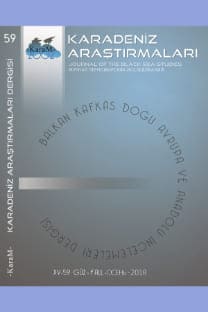İkinci Dünya Savaşı'nda Türkiye'nin Diplomatik Manevraları
1939-1945 yılları, dünyanın kaçınılmaz şekilde Müttefik ve Mihver olarak bir ayrışmaya uğradığı olağanüstü yıkıcı bir deneyim olan İkinci Dünya Savaşı’na işaret eder. Yükselişe geçen Alman ve İtalyan Faşizmine karşı, Büyük Britanya ve ABD batılı demokrasileri Komünist Sovyetler Birliği ile ittifak kurmuşlardır. Ancak, Türkiye, Birinci Dünya Savaşı’nın travmasını yaşamış, çökmüş bir Osmanlı İmparatorluğu’nun yükünü sırtlamış ve uluslararası güçlerin toprağını işgal etmelerine karşı bir kurtuluş savaşı vermiştir. Aynı zamanda, prensipleri Batı demokrasileriyle aynı çizgide olan Cumhuriyetçi bir ulus devlet kurmuştur. Türkiye Cumhuriyeti, İkinci Dünya Savaşı tehdidi ile karşı karşıya kaldığında, yorgun, askeri ve ekonomik kaynakları yetersiz ve kesinlikle ulusal toprak bütünlüğü tehdit edilmedikçe bir sıcak savaşa girmeme kararlılığındadır. Türk siyasetinin temelinde, ulusal toprak bütünlüğünü koruyarak yaşamını sürdürme kararlılığı vardır.
Anahtar Kelimeler:
İkinci Dünya Savaşı, Türkiye, İngiltere, Almanya, Sovyet Rusya, İtalya
The Diplomatic Maneuvers of Turkey in World War II
The years between 1939 and 1945 corresponded with the Second World War, an extremely destructive period in which the countries of the world were subject to disintegration into the Allied and Axis Powers. Against the rise of German and Italian Fascism, the western democracies of Great Britain and the USA formed an alliance with the communist Soviet Union. Turkey had experienced the trauma of the First World War, had taken on the burden of the Ottoman Empire, which had already collapsed, and had fought the War of Independence after invasion by international forces. The Republic of Turkey was founded on principles in line with those of western democracies but was tired, lacked adequate military and economic resources, and had resolved not to take part in war unless its territorial integrity came under threat, a threat that was realized in the Second World War. Turkish politics were based on the decision to survive by maintaining the nation’s territorial integrity.
Keywords:
World War II, Turkey, Great Britain, Germany, Soviet Russia, Italy,
___
- UNPUBLISHED DOCUMENTS Cabinet Office: CAB 66/34/14 Foreign Office: Microfilms of 1936-1945: FO 954/28, Diplomatic Papers. 1941: FO 195/2469
- BOOS AND ESSAYS AÇIKALIN Cevat, (1947), “Turkey’s International Relations”, International Affairs (Royal Institute of International Affairs 1944-), 23/4: 4774 BİLGİN Mustafa Sıtkı-Steven Morewood, (2004), “Turkey’s Reliance on Britain: British Political and Diplomatic Support for Turkey against Soviet Demands, 1943-1947”, Middle Eastern Studies, 40/2: 24-57. CHOIInsu (1995), Small States and the Balance of Power. Naval Post Graduate School Monterey, California (Unpublished masters thesis). COOPER Malcolm, (2002), “The Legacy of Atatürk: Turkish Political Structures and Policy Making.” International Affairs (Royal Institute of International Affairs 1944-), 78/1: 115-128. DEPARTMENT OF STATE, (1955), Foreign Relations of the United States. The Conferences at Malta and Yalta, 1945, Washington: United States Government Printing Office. DEPARTMENT OF STATE, (1961), Foreign Relations of the United States. Conferences at Cairo and Tehran 1943, Washington: United States Government Printing Office. DERİNGİL Selim, (1982), “The Preservation of Turkey’s Neutrality during the Second World War: 1940.” Middle Eastern Studies, 18/1: 30-52.
- ISSN: 2536-5126
- Yayın Aralığı: Yılda 4 Sayı
- Başlangıç: 2004
- Yayıncı: Osman Karatay
